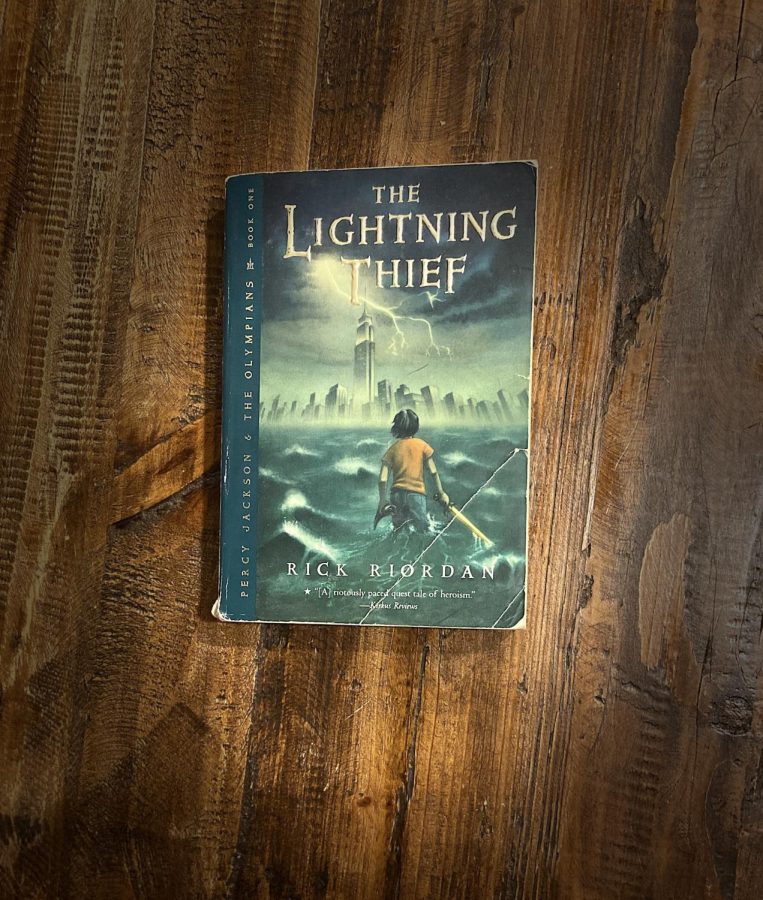Three Books That Deserved Better Movie Adaptations
The Lightning Thief by Rick Riordan was a beloved novel for many children. (Photo/Katie Jain ’21)
Throughout the years there have been many successful adaptations of books into movies. Films such as Little Women (2019), The Silence of the Lambs (1991), and It (2017) are regarded as great films that keep the core themes and story elements of their books. However, some movie adaptations of well-loved, well-written books have missed the mark in adhering to the source material or simply successfully translating the book into a movie.
Some books that come almost immediately to mind are the books in the Percy Jackson series. Written by Rick Riordan, the series follows twelve year old Percy Jackson over a span of four years and five books. The two movie adaptations, Percy Jackson & the Olympians: the Lighting Thief and Percy Jackson & the Olympians: the Sea of Monsters, came out in 2010 and 2013 respectively. Only the first two books were made into movies, mainly due to their reception by fans and by the author himself. The main difference between the movies and the books originates in the fact that the actors who play the characters in the movies are a lot older than the characters in the books. The stories and plot lines of each book are heavily dependent on the age of the characters, and since the movie adaption didn’t pay as much attention to the role that age played in the books, the entire timeline of the movie had to be shifted as well.
“They aged everyone up and messed with some pretty key moments in the story,” noted freshman Reed Dillon. This timeline change could have contributed to the end of the movie adaptations, considering it would get increasingly difficult to stay faithful to the source material as the story progressed.
Another example of a great book that was turned into a somewhat lackluster film adaptation is The Giver, one of the very first dystopian books children read and a favorite of many. While this film also aged up some of the characters, it additionally changed the source material and added relationships that detracted from the overall message. As freshman Alex McInnes noted, “It just wasn’t really adapted well and didn’t capture the feel of the book. The movie itself was underwhelming.” Dillon added, “I really dislike when movie adaptations flatten the complexity of a book just to add action and romance.” Freshman Neha Khandkar agreed, emphasizing that “the Giver added weird romance and unnecessary drama, which I thought took away from the emotional aspect of the story.”
Though these filmmakers made some massive edits to their novel counterparts, perhaps the adaptation with the most changes from the original, is Miss Peregrine’s Home for Peculiar Children, a fairly well known book with two sequels. The movie adaptation adjusted not only the age of the characters, but essentially swapped two of the characters’ personalities for no apparent reason. Khandkar stated, “Miss Peregrine’s was bad, in my opinion, because of the way they changed Emma’s character completely, not only with a different ability but also a completely wrong personality. Her sarcastic and bookish personality didn’t come across at all.”
Some compromise is needed to successfully translate a book into a movie; there are, after all, many different ways to tell a story. However, when movies change beloved characters or leave out integral parts of the story, this often leaves fans of the book greatly dissatisfied and fails to do justice to the original text.


